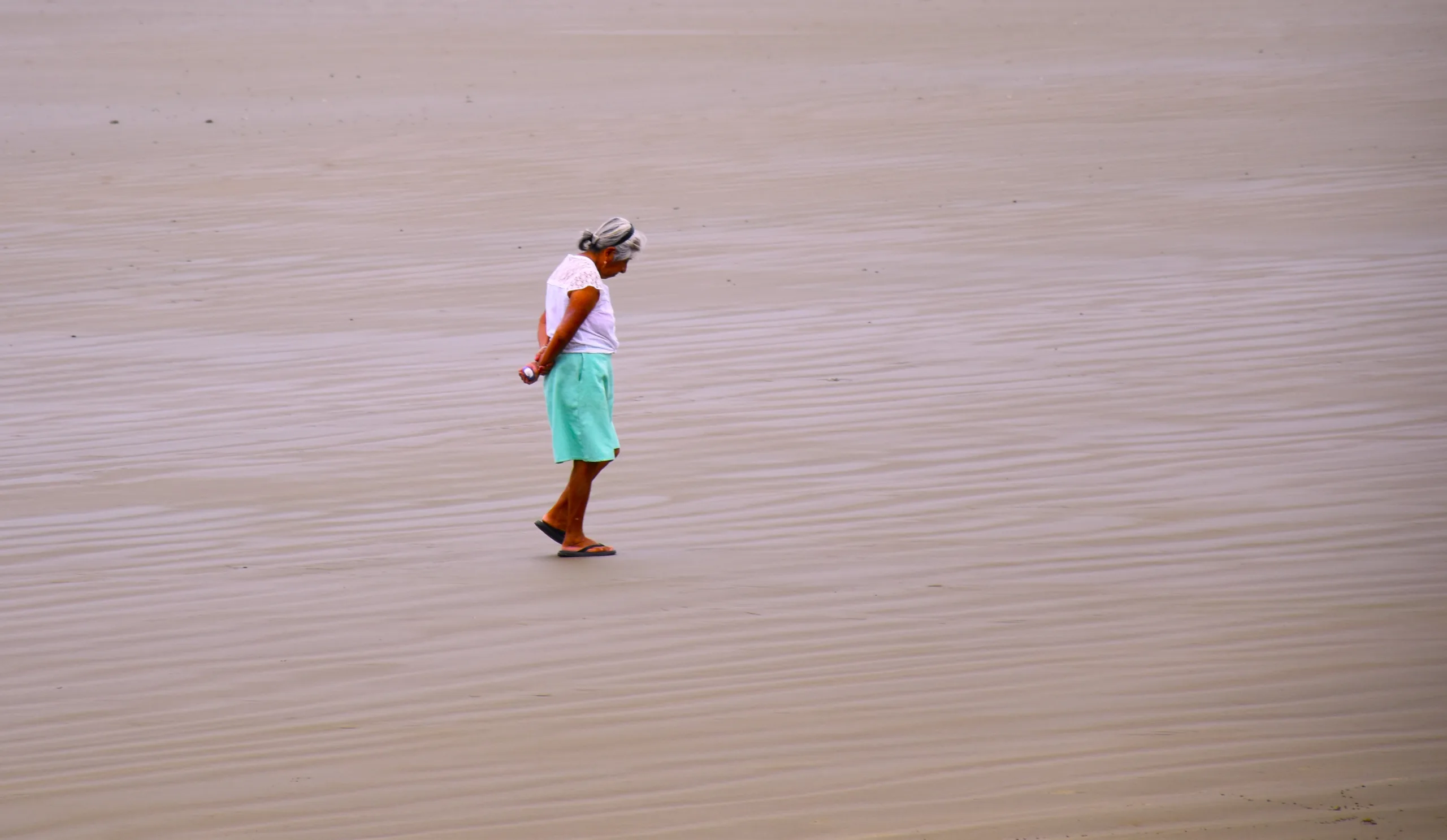A week at the beach, watching the tide roll in and people walk by, relaxes and energizes the soul

 The drive from the high valley of Paute to the sprawling beaches of Ecuador’s central coast takes all day. We left a little after dawn and arrived just in time to order a celebratory cocktail as our fatigue and the blinding heat of the afternoon faded into the lighthearted hues of sunset.
The drive from the high valley of Paute to the sprawling beaches of Ecuador’s central coast takes all day. We left a little after dawn and arrived just in time to order a celebratory cocktail as our fatigue and the blinding heat of the afternoon faded into the lighthearted hues of sunset.

What a beautiful close to the day! Pelicans swept the surf, feasting on careless fish. Couples with children crowded the beach farthest from the waves with umbrellas, shaggy towels, plastic scoops, colorful buckets, and sand-crusted action figures. Rambunctious surfers skimmed the cresting waves, trying to catch a ride ashore while a steady stream of joggers, couples walking hand-in-hand, and local folks riding rusted-out bikes pushing “pop-up” ceviche and coconut stands meandered up and down the beach with the same predictability as the changing tide. It was just as we expected: peaceful, exquisitely beautiful, and without the slightest whiff of the troubles souring the far northern coastline.

However, changes are afoot all along the coast, sparing only a few from the impact of accelerating coastal development on the intrinsic nature of local communities. Without firm controls and local planning, the loveliest beaches and most sublime coves may soon become the exclusive playgrounds of the elites — even at the expense of the families that have lived on the shore for generations. We must ensure this does not happen; displacing the established population is a disruptive process that can take generations to become whole again.

Besides, bunches of folks living in the coastal villages spread along the beaches are content to maintain the laid-back vibe for which the coast is famous. Among my fonder memories are watching folks riding their bikes at a speed more often reserved for old gringos in wheelchairs and teenagers standing around in small pods, waiting for something to comment on, be it a familiar car passing by, someone’s outlandish new blouse, or a pushcart followed by a straining kid delivering homewares and building material to someone who lives down the road a piece.

Listening to the endless undercurrent in sync with the tides is one of life’s greatest pleasures. Time glides up and down the sand with the precision of a vintage pendulum keeping pace with an ancient grandfather clock, a pace set by the mesmerizing push and pull of the moon’s alluring call.

One of the more common cautionary tales I heard before my trip was the necessity of avoiding Ecuador’s Mecca of Surfdom, Montanita. I was led to believe that the town was a warren of feral surf rats and young punks with too much bad ink on their arms and too much idle time on their hands, neither of which proved to be true. I enjoyed the youthful enthusiasm for comradery and watermen’s respect for one another.
When folks on the beach chanted, ‘roll out the barrels’, they are not referring to kegs of beer, but a barrel in the wave — a hollow airspace between the face of the wave and the lip that provides the best ride. Those who successfully catch such a wave ride “a bomb”, those who fall get “rag-dolled.”

The surfers I watched were all in good shape and clear-headed. They were committed to their sport and set lofty goals to improve their balance and strengthen their determination to be the best they can be. These are athletes anxious for the surf, not suds.
The abundance of old-style net fishing is of equal or even greater importance to the cultural identity of many communities. Starting in the earliest light and going straight through the last spark of dusk, dozens of fishers set their nets on the surf and pull their catch to shore.

It is difficult, back-breaking work hauling net, and often, all they catch is water and another opportunity to set their net. Again and again, they cast their fate to the sea for their dinner and perhaps an extra portion, or so, to sell to a fish joint tethered to the shore.

It is a routine that is as old as recorded time, and maybe earlier, for a single reason: it is sustainable.
“You take what you need and leave the rest. And, never take the very best.”
Montanita is a pretty town, although it is a bit worn around the edges. It is chock-a-block with restaurants and inviting little shops that appear to open when it cools — long after the sun goes down. I was certainly surprised when I ordered a pizza for lunch and was told, “No problem. We will have it ready by 8 p.m. We open the doors a little after 7.”
Although I was way too early for almost everything, I found a cute seafood place that was just fine. The food was predictable, properly cooked, and well-presented.

Our week on the beach was both relaxing and energizing. We are already anxious to return to Ecuador’s central coast to explore some of the hidden jewels we overlooked and just to lie back and watch the world turn on an axis of water again and again and forever after.



















